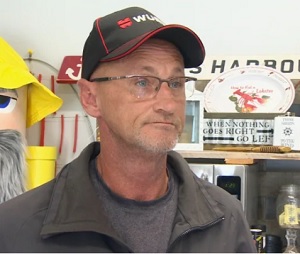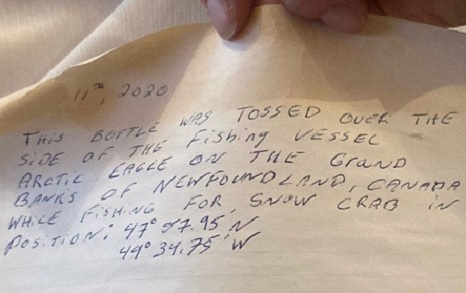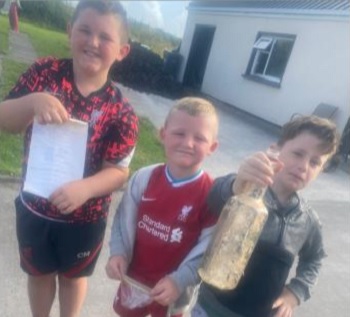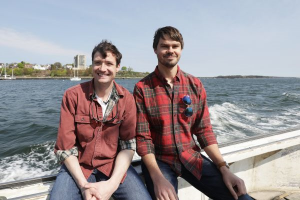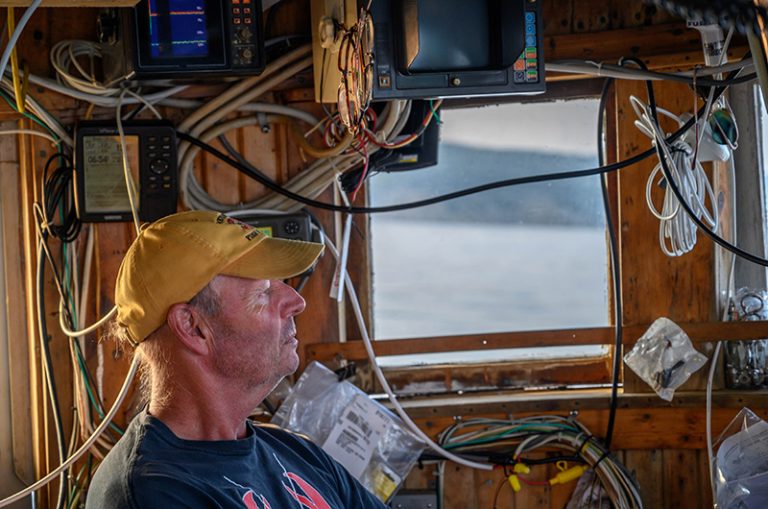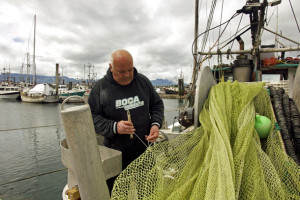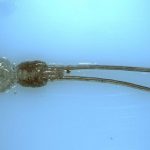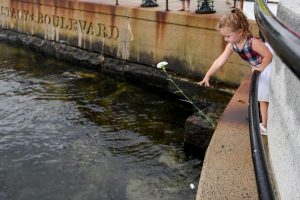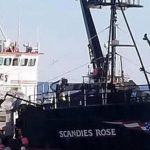Tag Archives: canada

Watching Wind And Solar Fail To Power The World Economy
You don’t have to be any kind of a genius to figure out that wind and solar generation are never going to supplant fossil fuels in powering the world economy. Thankfully the U.S., home of fracking, has mostly been spared the huge natural gas price spikes that have befallen Europe and Asia. If the dopes occupying the White House and leading the Congress had their way, we would be suffering the fate of those places and worse. And oil? It’s suddenly trading at $80 and more per barrel, the highest price since 2014. >click to read< 11:28 U.K. Turns to Coal as Low Wind Output Increases Power Prices – U.K. power prices rose after a coal power plant switched on Monday to make up for a shortfall in wind generation and limited flows on two power cables to Ireland. >click to read< 14:32

Should the next fisheries minister come from central Canada?
On election night, Prime Minister Justin Trudeau’s first cabinet casualty came early as Fisheries Minister Bernadette Jordan tumbled to defeat in Nova Scotia’s South Shore, St. Margarets riding. Her defeat means her successor will inherit the unresolved dispute over Nova Scotia’s Indigenous moderate livelihood lobster fishery. And that potentially means a clean slate for negotiations between all parties involved. And the chief of the band at the centre of that fishery says maybe the best way to establish that clean slate would be to enlist a fisheries minister from the interior, rather than the coasts, where they would be exposed to the pressures of their community. >click to read< 20:33
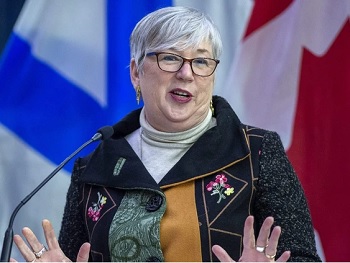
Canada: Federal election night upsets
Two incumbent Liberal ministers along with two party leaders suffered defeat in the federal election on Monday. Liberal Fisheries and Oceans Minister Bernadette Jordan was defeated in the South Shore—St. Margarets riding in Nova Scotia by Conservative candidate Rick Perkins. Jordan was first elected as a member of Parliament in 2015 and has served as a minister in Liberal Leader Justin Trudeau’s government since 2019. Last year, she was criticized over her handling of the dispute involving Indigenous fishing rights in Nova Scotia when a conflict between commercial fishers and Mi’kmaq fishers escalated and made national headlines. >click to read< 07:50

DFO returns patrol boats back to the wharf in Meteghan
After a confusing week for both commercial and aboriginal fishers DFO’s patrol vessels have returned to the wharf in Meteghan. After stories on the move ran in The Chronicle Herald and Globe and Mail, the boats were returned on Sunday. Both commercial and First Nations fishers are glad they are back, though for different reasons. Chief Mike Sack said Friday they wanted a federal presence to prevent a repeat of the violence Sipekne’katik’s fishermen were subject to last fall. Commercial fishermen, meanwhile, want DFO to prevent what they allege is a large scale commercial fishery happening outside their season under the guise of a food, social and ceremonial fishery. “There’s a treaty right but where does it end and where does it begin,” said Nathan Cooke, a buyer who owns Atlantic Canada Seafoods. >click to read< 17:26
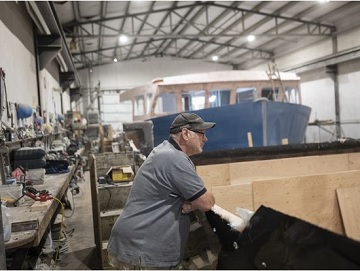
Politics: Lobster dispute, frustration with Ottawa could turn the tide on the Liberals in Nova Scotia
“Trudeau had the support of the First Nations in the last election. Not anymore. We’re voting NDP,” In rural Nova Scotia ridings such as South Shore-St. Margarets, where the fishery is a major employer, federal Fisheries Minister Bernadette Jordan is now fighting to keep her job,,, It’s just past the lunch break inside the main assembly shop at Yarmouth Boat Works, These $1.2-million state-of-the-art vessels, with kitchens, sleeping quarters, flat-screen TVs and showers, are meant to venture far out into the ocean and carry thousands of pounds of lobster back to land. Owner Steve Gee says while demand for new boats has slowed, finding skilled workers is hard, despite a good fibreglass technician getting $28 an hour, a decent wage in Yarmouth County. “I need 23 workers, but three showed up today,” he said. “Our latest job posting had 300 applicants, and not one of them was in Canada.” >click to read< 11:31

Mismanaged Since 1949! – A primer on fishing failures
Both the federal and municipal elections heighten our interest in whether or not fishery issues will, at last, be tackled in this province. Perhaps those running for elected positions need a primer on how our fishery was decimated over the past 70 years since Canada took over management of this resource following Newfoundland and Labrador’s Confederation entry in 1949. Hopefully, it will counter the current PR that is being disseminated by DFO, which wants Canadians to believe that it is not the department that has failed our province and our communities, but that the destruction has come from climate change, changes in water temperatures and other uncontrollable factors accounting for the demise of our once great fishery resource. There are still many, including myself, who have worked in the industry all these decades and witnessed first-hand and know full well that DFO has mismanaged our fishery since 1949. >click to read<, By Gus Etchegary, St. John’s 13:30

Hitting the Lottery! A small New Brunswick town scores its 2nd big win
A retired crab fisherman won a jackpot online prize of $644,000, making him the second person from Le Goulet, N.B., to win a money prize. In early August, another retired fisherman from the same village won $1 million while playing Lotto 6/49. In a release Monday, Atlantic Lottery said Louis Mallet won a jackpot of $644,380 after he entered his Jackpot Scratch’N Win tickets into Atlantic Lottery’s 2Chance contest website. >click to read< 18:18
Lobster Fisherman is New Brunswick’s newest Millionaire – Atlantic Lottery says Clovis Roussel heard someone in his community had won and found out it was him when he went to the store. >click to read<
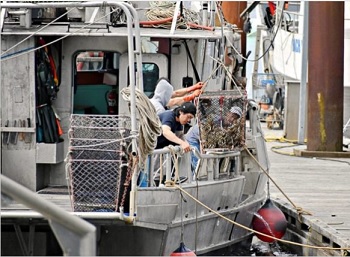
Fish Harvesters Benefit Program open for 2nd phase
Fish harvesters in the Northcoast and Haida Gwaii can now apply for the second phase of benefit payments under the Fish Harvester Benefit and Grant program, the Ministry of Fisheries and Oceans announced, on Aug. 5. This program helps eligible self-employed fish harvesters, who were not eligible for other financial relief programs, access critical support in dealing with the financial burdens of COVID-19. More than 18,000 fishers and families have accessed $130 million through the program in all provinces across Canada since its May 2020 inception. This includes self-employed commercial and freshwater fish harvesters, Indigenous harvesters with communal commercial fishing licences designated by their communities, and sharepersons crew who had less than their usual income in 2020. >click to read< 07:53
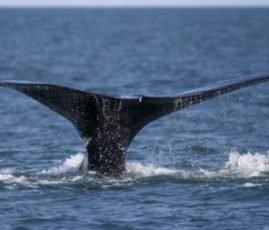
Canada implements the $20M Whalesafe Gear Adoption Fund
The Honourable Bernadette Jordan, announced the new $20 million Whalesafe Gear Adoption Fund, to help harvesters in Atlantic Canada and Quebec adopt whalesafe gear into their commercial fishing operations. Over the next two years, this funding will be available to support Indigenous and non-indigenous harvesters, not-for-profit organizations, academia and other partners to purchase, test and refine existing whalesafe gear, such as low breaking strength rope and ropeless gear technology, with the goal of making them operational by 2023. The Whalesafe Gear Adoption Fund will also provide support to Canadian manufacturers to encourage domestic supply of commercially-ready whalesafe gear by 2023. >click to read< 14:53
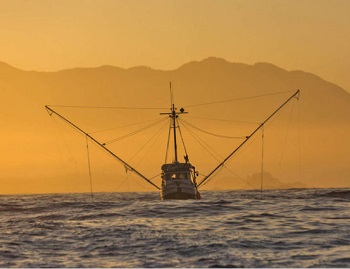
Five Nuu-chah-nulth First Nations demand fishing rights
“Our 5 Nuu-chah-nulth Nations demand reconciliation and recognition of their rights as affirmed in the constitution and declared by the Courts. They can not wait any longer for Canada to work with them on fishing plans and will be fishing under the authority of their Ha’wiih and asserting their rights as they have done since time immemorial,” said Nuu-chah-nulth Tribal Council President Dr. Judith Sayers,, The joint-statement demands that the five Nations have the right to fish and sell fish and adds that that right is “second only to conservation and has priority over the recreational and commercial sectors.” >click to read< 08:50
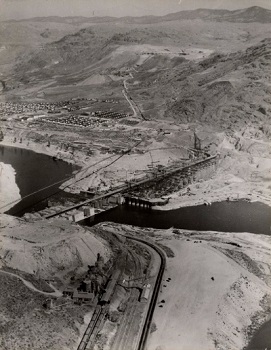
Flawed rescue? – Franklin D. Roosevelt asked for plans for a low dam. Joe Biden wants windmills
“The federal role in damming the Columbia tied in well with the New Deal belief that the government should stimulate economic recovery by putting people to work and encouraging the creation of public utilities,” records a National Park Service history of the river’s Grand Coulee dam. “Franklin D. Roosevelt, elected president of the United States in 1932, asked for plans for a low dam with foundations strong enough to support a higher dam later, one that would back water up to the Canadian border.” (President Joe Biden’s efforts to grow offshore wind) No thought was given to the river’s salmon. “Of all the impacts that caused extinctions of 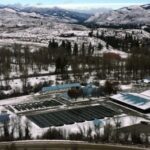 Columbia River Basin salmon and steelhead, dams were the most significant. “The dam wiped out runs that spawned in tributaries that drained into the Columbia from that point, river mile 596, to the headwaters, a distance of 645 river miles. Adding the tributary miles where salmon spawned nearly doubled the distance. >click to read< 14:36
Columbia River Basin salmon and steelhead, dams were the most significant. “The dam wiped out runs that spawned in tributaries that drained into the Columbia from that point, river mile 596, to the headwaters, a distance of 645 river miles. Adding the tributary miles where salmon spawned nearly doubled the distance. >click to read< 14:36
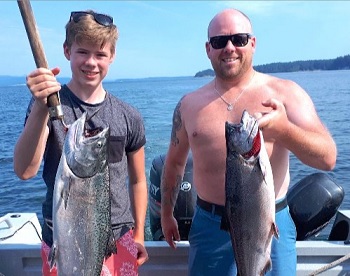
Should DFO rein in sport fishing to help save salmon?
Conservation groups want Ottawa to dramatically curtail the recreational fishery as it did with the commercial fishery last week in order to save wild salmon on the West Coast. But the sport sector, equally keen to protect the prized but diminishing chinook salmon, wants Fisheries and Oceans Canada (DFO) to make sure any further measures and restrictions this year are backed by science, and provide stability and results for the embattled fishers and the fish population. The federal government failed to address the recreational fishery, which also impacts salmon returns, despite making historic and dramatic reductions to the commercial fleet on the West Coast, said Jeffery Young, science and policy analyst with the David Suzuki Foundation. >click to read< 08:47
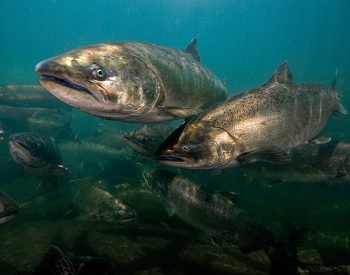
Survivor: Salmon Edition
In 2020, COSEWIC designated seven chinook populations in southern British Columbia as either endangered or threatened. Much the same is true in the Columbia River watershed in the northwestern United States, where chinook populations may have lost more than one-third of their genetic diversity. More worrying still, the rate of young salmon returning as adults to rivers from California to Alaska over the past half-century has plummeted to one-third of earlier levels. It’s a picture that puzzles many researchers. A myriad of variables impact salmon survival and it takes time and research to untangle them. Land use, from mining to damming and irrigation, for example, has affected chinook stocks in the Pacific Northwest at critical life stages, but it can’t be blamed for what’s happening in the northern latitudes. >click to read< 09:05
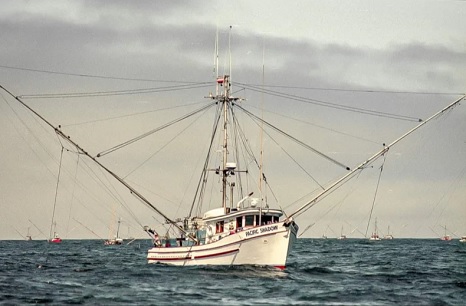
On the Brink of Extinction: DFO salmon closures sink dreams of Pacific fishermen
Geoff Millar’s livelihood is on the brink of extinction after DFO closed roughly 60 per cent of B.C.’s commercial salmon fisheries. The closures, DFO stated, will last “multiple generations” of fish to save tumbling salmon populations. The decision leaves Millar, along with hundreds of other commercial fish harvesters on the B.C. coast, in despair and in difficult financial straits. “These closures have absolutely devastated us,” affirmed James Lawson, a Heiltsuk fish harvester based in Campbell River, B.C.,, “We’ve been forced into a corner, and the only option is retirement, that seems to be DFO’s goal.” >click to read< 07:35
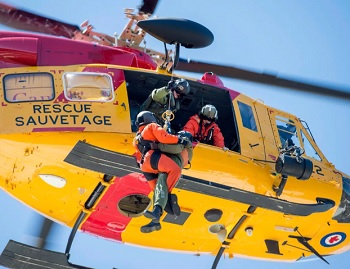
Canada has a Helicopter problem. Fed plan to upgrade choppers is,,, ‘unaffordable’?
The Liberal government announced plans to refurbish the CH-149 Cormorant fleet to keep the 14 aircraft flying and saving lives until 2042. It chose to sole-source the project with European aircraft manufacturer Leonardo. Defence Minister Harjit Sajjan announced that an additional two helicopters would be added to the fleet. But newly-released DND docs show that the company came back with a sky-high cost estimate,,, The document did not cite the cost estimate. Just over $1.03 billion had been set aside by defence planners,,, Department awarded the contract before negotiating price,,, >click to read< 13:50
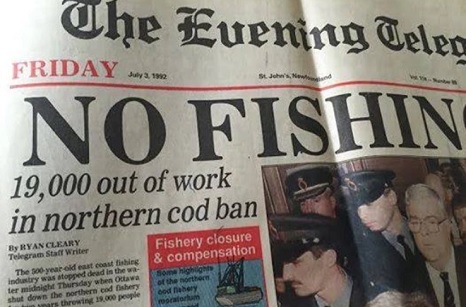
29 years of northern cod moratorium have cost NL at least $26 billion
In his 1992 book, No Fish and Our Lives, Some Survival Notes for Newfoundland, Cabot Martin wrote that a rebuilt northern cod stock could support annual harvesters of 400,000 tonnes (881 million/lbs).The moratorium remains the biggest layoff in Canadian history, and while there’s a small-scale inshore stewardship fishery, Fisheries and Oceans does not set a total-allowable catch (TAC), and it’s not considered a full-fledged commercial fishery. Where are we today? All three commercial cod stocks adjacent to Newfoundland and Labrador are categorized by DFO scientists as in the critical zone, meaning removals are to be kept to a minimum. >click to read< – 25 Years ago Today – The Northern Cod Moratorium – Sunday, July 2, 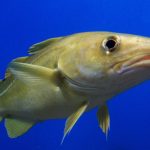 marks a quarter of a century since then federal fisheries minster John Crosbie announced what was planned to be a two-year moratorium on the northern cod fishery. It continues on today, though it has often seemed lost in the wake of a lucrative crab and shrimp fishery that remarkably saved the industry and many communities. But back in 1992, a province settled and built on the back of the mighty cod fishery, >click to read< 11:20
marks a quarter of a century since then federal fisheries minster John Crosbie announced what was planned to be a two-year moratorium on the northern cod fishery. It continues on today, though it has often seemed lost in the wake of a lucrative crab and shrimp fishery that remarkably saved the industry and many communities. But back in 1992, a province settled and built on the back of the mighty cod fishery, >click to read< 11:20
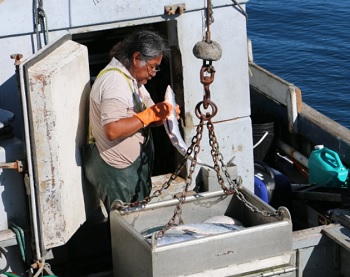
Feds told again to allow Indigenous commercial fisheries
Canada must stop controlling how five First Nations in B.C. harvest and sell salmon, halibut, and dozens of other marine species, a B.C. court has ruled. The decision marks the end of a 15-year legal battle waged by the federal government to prevent the Nuu-chah-nulth Nations, a coalition of five First Nations on the west coast of Vancouver Island, from reclaiming their traditional commercial fisheries decimated by colonial policies. “We are just trying to establish a commercial fishery that provides income to the families,”, “That’s the message we’ve been trying to give DFO as the Mi’kmaq fisheries on the East Coast have tried to do as well.” >click to read< 09:35
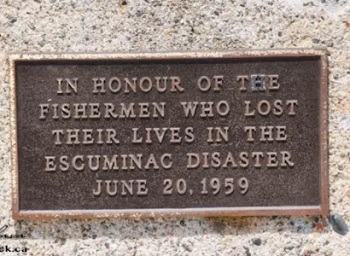
The Escuminac Hurricane capsized 22 fishing boats off the coast of New Brunswick
Between June 18 and 21, 1959, an Atlantic hurricane caused one of New Brunswick’s worst fishing-related disasters. The incident, called the 1959 Escuminac disaster, killed 35 people and caused US$2.5 million worth of damage. On June 18, the storm developed in the Gulf of Mexico. On the same day, it hit Florida and strengthened into a tropical storm. The storm reached hurricane strength on June 19 but was turned into an extratropical cyclone the same day. The storm’s remnants hit Atlantic Canada before dissipating on June 21., In Atlantic Canada, around 45 boats were in the Northumberland Strait when the storm was approaching. They didn’t have radios to receive warnings. The rough water caused at least 22 fishing boats to capsize. >click to read< 14:50
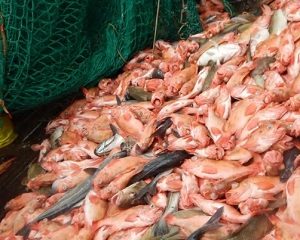
Canada adds warm-water fish to list of species monitored in DFO summer trawl survey off East Coast
Several warm-water fish species were added to the annual summer research vessel survey off the coast of Eastern Canada in 2020.,, Monitoring for the blackbelly rosefish, john dory, trigger fish, tilefish fish, dusky shark and others was included in the DFO summer trawl survey along the Scotian Shelf and Bay of Fundy for the first time last year. It was done at the request of the commercial fishing industry, which is capturing them accidentally, called bycatch, but cannot land them because they are not included in any Canadian commercial fish licence conditions. That doesn’t make sense to Alain d’Entremont, president and CEO of Scotia Harvest,,, “I think that if they are groundfish species and we are catching them as part of our regular fishing, then there should be mechanisms for us to be able to land them,,, >click to read< 16:55
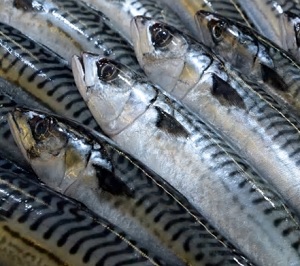
Canada cuts Atlantic mackerel quota in half to ‘rebuild stock’, to be released in two phases to ensure access
Canada has slashed the quota in half for Atlantic mackerel, from 8,000 tonnes last year to 4,000 tonnes this year. “This is a difficult decision that has economic impacts on commercial harvesters and their communities, but the science is clear: stronger actions need to be taken to rebuild the Atlantic mackerel stock,” said Federal Fisheries and Oceans Minister Bernadette Jordan in a news release Friday. That will help ensure fishermen in Newfoundland, where mackerel arrive later in the year, get access to some quota. >click to read< 08:03
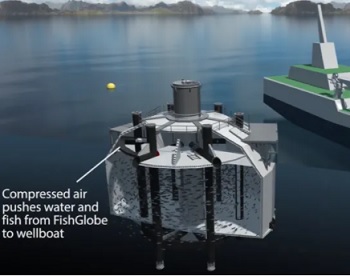
The last cowboys – a replay of the story of cattle in the American West
Norway, a country less than a quarter the size of Alaska, is on pace to bring 1.2 million tonnes of salmon to market this year, and the technologists in that country are talking about the potential to grow their production to 3 million tonnes per year by 2030. Chile, Scotland, the Faroe Islands, and Canada are all significant producers with lesser production in Australia, New Zealand, Iceland, France, Ireland and Finland. Meanwhile, land-based, recirculating aquaculture systems (RAS) farms are threatening to lead to an explosion in salmon aquaculture almost everywhere. To truly understand the threat these farmers pose to the future of one of Alaska’s oldest and still largest industries,,, >click to read< 08:52
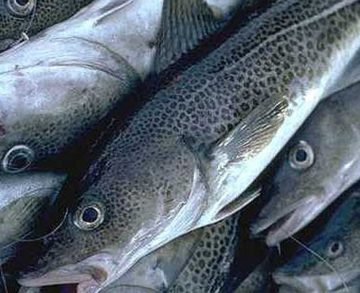
Fishermen should be listened to
It’s a typical story of David versus Goliath,,, That appears to be the case as prawn fishers on the Island take a stand against what looks to me to be an arbitrary and bureaucratic decision by the Department of Fisheries and Oceans Canada to change regulations regarding the harvesting of spot prawns, which now makes the sale of frozen-at-sea spot prawns illegal. Thanks to the efforts of many, has agreed to conduct an emergency review of 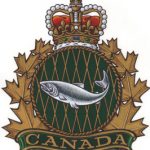 the regulations and, hopefully, common sense will prevail and the new rules will be reversed. Unfortunately, that kind of common sense just didn’t appear to exist in DFO when the northern cod stocks collapsed off Canada’s east coast in the early 1990s. >click to read< 07:25
the regulations and, hopefully, common sense will prevail and the new rules will be reversed. Unfortunately, that kind of common sense just didn’t appear to exist in DFO when the northern cod stocks collapsed off Canada’s east coast in the early 1990s. >click to read< 07:25
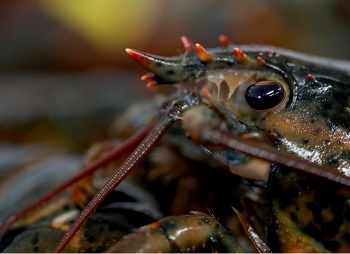
The lobster population in Canada’s most important harvesting area is healthy and is not overfished
The 20,000-square-kilometre fishing ground off southwestern Nova Scotia and into the Bay of Fundy, known as Lobster Fishing Area 34, accounts for 20 per cent of all lobster landed in Canada and 10 per cent of North American landings. “The stock is considered to be in the healthy zone. Furthermore, as the relative fishing mortality is below the removal indicator in all four survey indices, overfishing is not occurring,” the report concluded. The latest assessment, which ended in 2019, used commercial landings and several independent trawl surveys to evaluate the stock status. >click to read< 09:50
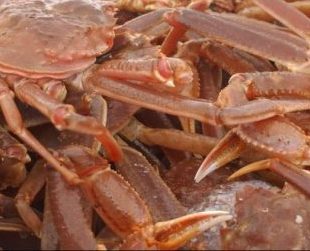
Snow crab market heats up with Record-Breaking Prices in northern Cape Breton
Soaring demand from the U.S. has resulted in snow crab coming in at over $8 a pound. The price was closer to $4.25 this time last year. Dave Donovan fishes out of Neils Harbour on board the Krista & Megan. “Eight dollars is a big bonus,” he said. “I guess it’s the best price I’ve ever seen since I’ve been in the fishery.” Donovan said the hot market this year is welcomed by all on the wharf, and in the processing plant. The high price is a surprise to Osborne Burke, “We didn’t anticipate this,” >click to read< 14:14

Volunteers continue search for missing Elsipogtog fisherman
A large-scale search is underway for any evidence of the Tyhawk fishing vessel or its missing captain. The New Brunswick based boat, owned by the Elsipogtog First Nation, sank off the coast of Cape Breton, N.S. earlier this month. Now friends and family from Mi’kmaq communities in both provinces are pooling their resources and raising money to try and find the boat’s captain, Craig Sock. Volunteer Starr Paul of the Eskasoni First Nation in N.S., said a search team is in Chéticamp, N.S. scouring the shoreline and the water for any evidence of Sock, who was known as Jumbo. Four of the six crew members on the vessel were rescued after it took on water and capsized on April 3. Seth Monahan died and Jumbo was later declared missing and presumed dead. >click to read< 10:18
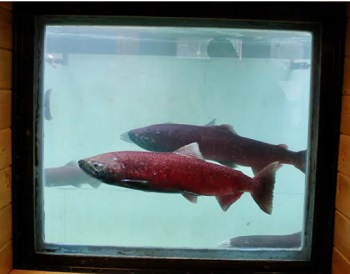
2021 Yukon River Chinook salmon run will likely be small, according to forecast
Somewhere between 42,000 and 77,000 Canadian-origin fish are anticipated to make the journey from the Bering Sea this year, Alaska and Yukon experts told attendees during the Yukon River Panel’s pre-season meeting on Tuesday. The most likely run size would be 57,000, they said. That’s smaller than the pre season outlooks for 2020 and 2019, and both those years ended disastrously when it came to getting enough salmon across the border. Under an international treaty, Canada and the U.S. are supposed to work together to ensure at least 42,500 fish make it to their spawning waters in Yukon. That spawning escapement goal hasn’t been met since 2018, last year only about 33,000 Chinook made it. >click to read< 13:21
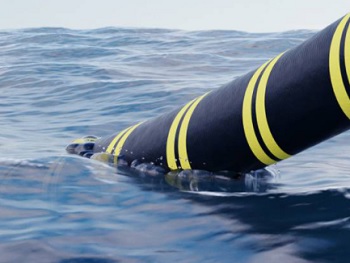
Undersea cable owner seeks injunctions against trawler operators
The owners of two transatlantic communication under sea cables are seeking High Court injunctions preventing fishing boat owners from trawling near their property. The action has been brought by GTT Communications Inc and related entities Hibernia Express Ireland Ltd and Hibernia Atlantic Cable System Limited which run between Ireland, the UK, and Canada. The companies claim that the owners of several fishing vessels have been trawling in the waters near the cables. This it is claimed, poses a high risk of damage to the cables. >click to read< 14:06






